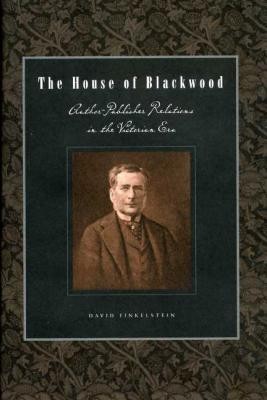
- We will send in 10–14 business days.
- Author: David Finkelstein
- Publisher: Penn State University Press
- ISBN-10: 0271058366
- ISBN-13: 9780271058368
- Format: 15.2 x 22.9 x 1.2 cm, softcover
- Language: English
- SAVE -10% with code: EXTRA
Reviews
Description
The Scottish publishing firm of William Blackwood & Sons, founded in 1804, was a major force in nineteenth- and early twentieth-century British literary history, publishing a diverse group of important authors--including George Eliot, John Galt, Thomas de Quincey, Margaret Oliphant, Anthony Trollope, Joseph Conrad, and John Buchan, among many others--in book form and in its monthly Blackwood's Magazine. In The House of Blackwood, David Finkelstein exposes for the first time the successes and failures of this onetime publishing powerhouse.
Finkelstein begins with a general history of the Blackwood firm from 1804 to 1920, attending to family dynamics over several generations, to their molding of a particular political and national culture, to the shaping of a Blackwood's audience, and to the multiple causes for the firm's decline in the decades before World War I. He then uses six case studies of authors--Conrad, Oliphant, John Hanning Speke, George Tompkyns Chesney, Charles Reade, and E. M. Forster--and their relationships with the publishing house. He mines the voluminous correspondence of the firm with its authors and, eventually, with the authors' agents. The value of the archive Finkelstein studies is its completeness, the depth of the ledger material (particularly interesting given that the Blackwoods did much of their own printing), and the extraordinary longevity of the firm. A key value of Finkelstein's account is his attention to the author/publisher/reader circuit that Robert Darnton emphasizes as the central focus of book history.
EXTRA 10 % discount with code: EXTRA
The promotion ends in 20d.18:40:41
The discount code is valid when purchasing from 10 €. Discounts do not stack.
- Author: David Finkelstein
- Publisher: Penn State University Press
- ISBN-10: 0271058366
- ISBN-13: 9780271058368
- Format: 15.2 x 22.9 x 1.2 cm, softcover
- Language: English English
The Scottish publishing firm of William Blackwood & Sons, founded in 1804, was a major force in nineteenth- and early twentieth-century British literary history, publishing a diverse group of important authors--including George Eliot, John Galt, Thomas de Quincey, Margaret Oliphant, Anthony Trollope, Joseph Conrad, and John Buchan, among many others--in book form and in its monthly Blackwood's Magazine. In The House of Blackwood, David Finkelstein exposes for the first time the successes and failures of this onetime publishing powerhouse.
Finkelstein begins with a general history of the Blackwood firm from 1804 to 1920, attending to family dynamics over several generations, to their molding of a particular political and national culture, to the shaping of a Blackwood's audience, and to the multiple causes for the firm's decline in the decades before World War I. He then uses six case studies of authors--Conrad, Oliphant, John Hanning Speke, George Tompkyns Chesney, Charles Reade, and E. M. Forster--and their relationships with the publishing house. He mines the voluminous correspondence of the firm with its authors and, eventually, with the authors' agents. The value of the archive Finkelstein studies is its completeness, the depth of the ledger material (particularly interesting given that the Blackwoods did much of their own printing), and the extraordinary longevity of the firm. A key value of Finkelstein's account is his attention to the author/publisher/reader circuit that Robert Darnton emphasizes as the central focus of book history.


Reviews